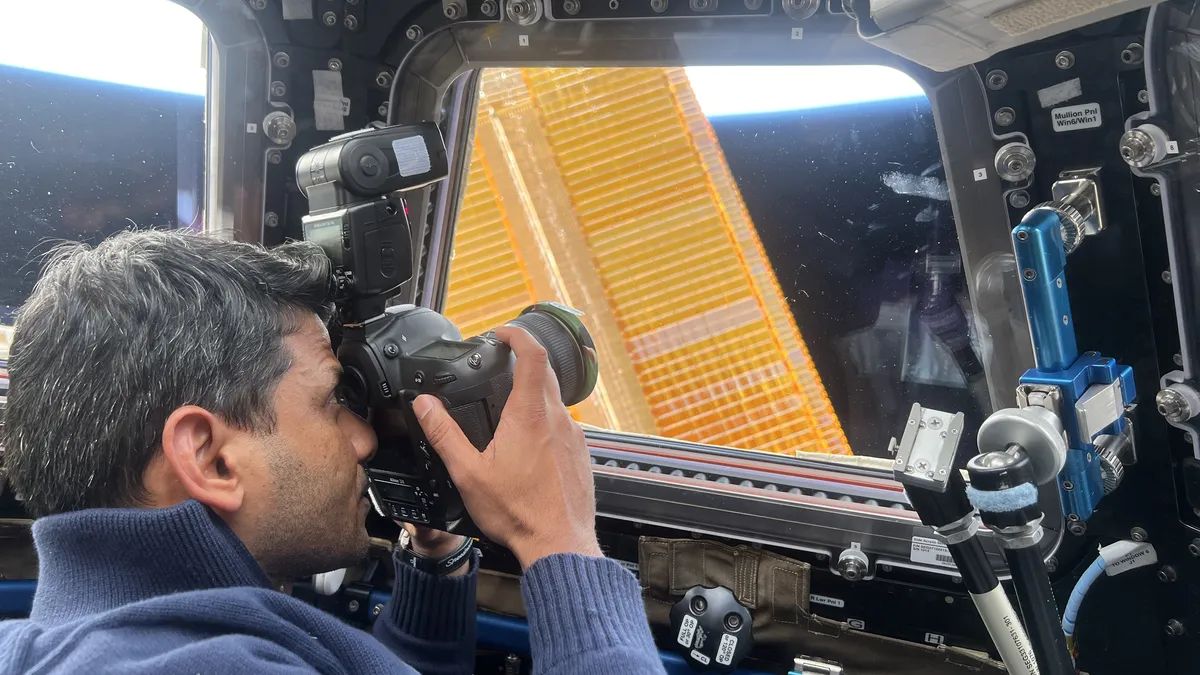Axiom Mission 4: Shubhanshu Shukla at the forefront of cutting-edge biological research in space
 Ax-4 Pilot Shubhanshu Shukla takes photos of Earth aboard the International Space Station
Ax-4 Pilot Shubhanshu Shukla takes photos of Earth aboard the International Space Station
Shubhanshu “Shux” Shukla has become a source of immense pride for India as he made history aboard the International Space Station as part of Axiom Mission 4. The Indian pilot, alongside Commander Peggy Whitson, Polish mission specialist Sławosz “Suave” Uznański-Wiśniewski, and Hungarian mission specialist Tibor Kapu, has spent eleven extraordinary days conducting world-class scientific research while representing India’s growing presence in space exploration.
Shukla’s historic journey began at 11.51 am IST on June 25 2025, when he launched from NASA’s Kennedy Space Centre aboard the SpaceX Dragon spacecraft “Grace.” After a 28-hour voyage through space, he successfully docked with the ISS at 4.01 pm IST on June 26 2025, and entered the space station at 5.53 pm IST the same day. During the welcome ceremony, he became the 634th person to orbit Earth, marking a historic milestone for Indian space exploration as he received his official astronaut pin.
From June 27 onwards, Shukla has been at the forefront of cutting-edge biological research that could revolutionise both space travel and life on Earth. His most significant work involved studying microalgae—tiny green organisms that hold incredible promise for future space missions.
These microscopic plants could provide multiple life-support functions for astronauts travelling to Mars and beyond, serving as sources of food, oxygen, and even fuel. Throughout his daily schedule from June 28 to July 5, Shukla has been carefully monitoring how these algae grow and behave in the weightless environment of space, gathering data that could make long-duration space missions more sustainable and self-sufficient.
Starting from June 28, Shukla has been conducting groundbreaking experiments on muscle health in space. Working inside the specialised Life Sciences Glovebox during his research sessions, he has been studying how muscles weaken in microgravity, a condition called muscle atrophy that affects all astronauts during extended space missions. His daily work from June 29 through the first week of July aimed to develop treatments and exercise protocols that could help astronauts maintain their strength during long journeys to distant planets. Remarkably, this work also has profound implications for healthcare on Earth, potentially helping elderly people and patients with muscle-wasting diseases maintain their physical strength and mobility.
On June 30 and continuing through the first week of July, Shukla became involved in research with tardigrades, microscopic creatures known for their incredible ability to survive in extreme conditions, including the harsh environment of space. Scientists are studying these tiny “water bears” to understand how life can endure radiation, extreme temperatures, and the vacuum of space. The insights gained could help protect human cells from damage and improve medical treatments for various conditions on Earth.
“One of Shukla’s most exciting projects involved the ‘Sprouts’ experiment, where he has been growing seeds in space to understand how microgravity affects plant genetics and growth patterns. This research is crucial for developing sustainable food production systems for future Mars colonies and long-term space habitats. The work also contributes to improving agricultural techniques on Earth, particularly in challenging environments or urban farming situations,” explained space expert Girish Linganna.
As the mission progresses toward its planned completion around July 9, 2025, with the crew expected to undock from the ISS and return to Earth shortly thereafter, Shukla will continue his vital research work during the remaining days of the 14-day mission. The anticipated return date places his homecoming around July 10-11, 2025, marking the end of a truly historic chapter in Indian space exploration.
As Shukla prepares for his return to Earth after completing over 220 orbits and travelling approximately 5.8 million kilometres through space during his 14-day mission, he is proving that Indian astronauts can excel at the highest levels of space research. His work is contributing to scientific breakthroughs that will benefit not only future space missions but also countless people on Earth.
Sci/Tech